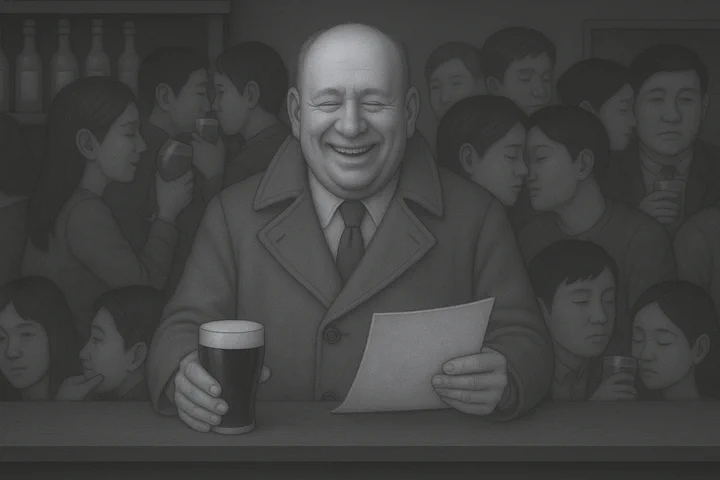Trump’s tariffs on Brazil will temper Yoon prosecution

Significance. The July 30 decision to impose punitive tariffs on Brazil—explicitly citing the criminal case against Jair Bolsonaro—establishes a precedent: the United States is willing to redefine legal accountability as a threat to its economic and strategic interests.
South Korea’s effort to prosecute former President Yoon Suk-yeol has become entangled in a broader geopolitical struggle over judicial sovereignty. What began as a domestic investigation into prosecutorial abuse is now exposed to direct interference from the Trump administration, which has shown its willingness to use tariffs, sanctions, and diplomatic pressure to protect ideological allies abroad.
For South Korea, this means the Yoon prosecution is no longer just a question of rule of law but a test of judicial independence—an issue already attracting attention. The fusion of judicial intervention with economic coercion threatens to inflame anti-American sentiment and open South Korea to external pressure.
Analysis. On 30 July, President Trump invoked a 1977 emergency law to impose 50% tariffs on Brazil, citing not economic rationale—Brazil runs a trade deficit with the U.S.—but the criminal prosecution of former President Jair Bolsonaro.
Trump’s executive order declared Brazil’s judicial actions an economic emergency. His administration also imposed sanctions on Brazilian Supreme Court Justice Alexandre de Moraes and implemented visa restrictions on judicial officials prosecuting Bolsonaro.
This action will increase the efforts of Yoon’s allies and supporters to have the issue looked at by the Trump administration. Framing the case as politically motivated gives them an entry point to secure U.S. pressure to influence prosecutorial and judicial action.
The prosecution of former President Yoon Suk-yeol marks a pivotal moment in South Korea’s post-authoritarian political maturation. Yoon, a former prosecutor-general, faces investigations for abuse of power, illicit surveillance, and politically motivated prosecutions. These probes, launched under the Lee Jae-myung administration, are framed as efforts to restore prosecutorial neutrality and accountability. Yet, given Yoon’s polarizing role and ideological alignment with conservative forces, the legal proceedings are inevitably politicized.
This unprecedented use of tariffs and sanctions to protect a foreign political ally on trial establishes a new playbook: judicial independence in allied democracies will be subordinated to ideological loyalty.
Yoon, like Bolsonaro, is seen by Trump’s inner circle as a fellow traveler—a national conservative who used state power to suppress opposition and now faces institutional consequences. South Korean prosecutors and judges are no longer operating within a purely domestic framework; they now face the threat of direct economic and diplomatic retaliation from Washington.
Public tolerance for U.S. pressure is already waning, particularly in light of the 1 August tariff deadline that threatens key Korean exports.
The convergence of two flashpoints, Trump’s interference in South Korea’s judicial affairs and the imposition of unfavorable tariff conditions, creates fertile ground for a resurgence of anti-Americanism.
Washington is seen not only dictating economic terms but also shielding a disgraced former president from legal accountability, the perception will solidify that the U.S.–Korea alliance serves American interests first and foremost.
For a younger generation with no memory of the Korean War but deep awareness of economic injustice and sovereignty issues, this dual intrusion—into the courtroom and the marketplace—will not be ignored. While Seoul’s political leadership may hesitate to confront Washington directly, civic movements and public discourse will fill the vacuum. The narrative of judicial subjugation, when combined with economic coercion, will catalyze a cultural and political backlash.
If South Korea abandons or weakens the prosecution of Yoon under U.S. pressure, it will also signal to other major powers that judicial processes are open to external manipulation. This will not remain a bilateral issue.
China and Russia will adopt similar coercive methods, viewing Seoul as a pliable state susceptible to pressure when core national interests are at stake. Trade dependencies, investment flows, and digital infrastructure will become tools for foreign governments to shape Korean legal outcomes.
Judicial interference will no longer be the exception—it will become standard operating procedure in geopolitical competition. The United States will have established the precedent that political loyalty outweighs legal independence, and other powers will exploit the same vulnerability. South Korea’s credibility as a sovereign legal actor will deteriorate, and its foreign policy will be conducted under threat of retaliation—legal, economic, and technological.
Impact. In the immediate term, the Trump administration’s willingness to violate judicial boundaries will temper South Korea’s efforts to prosecute Yoon. In the medium term, it increases the potential for anti-Americanism and opens South Korea to similar pressure from other major powers.
